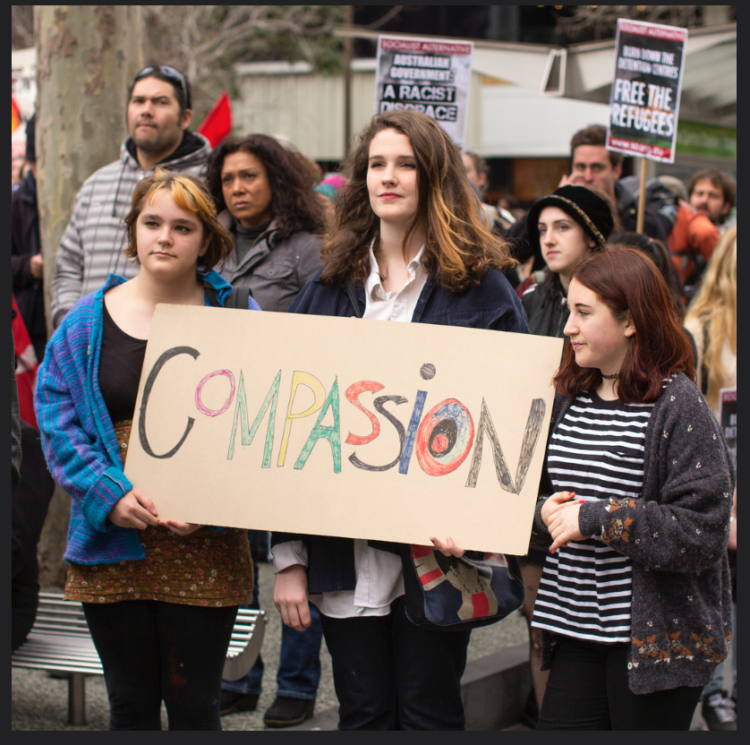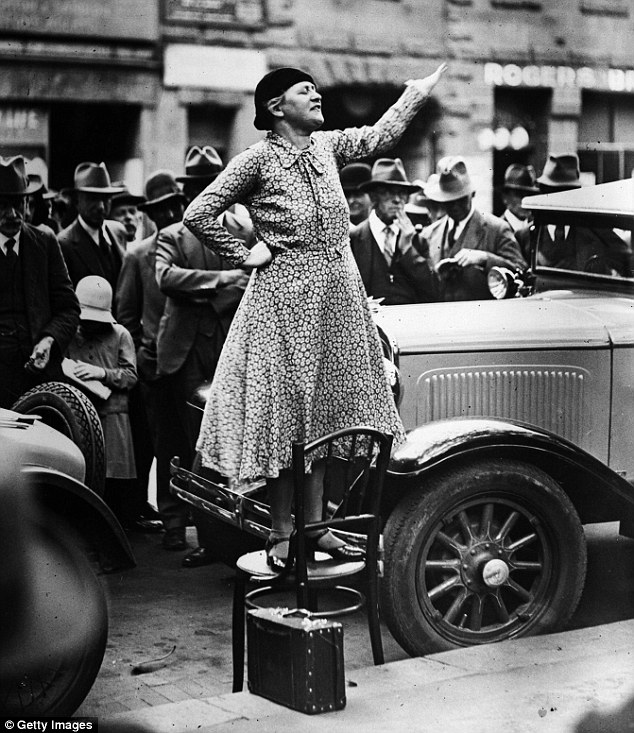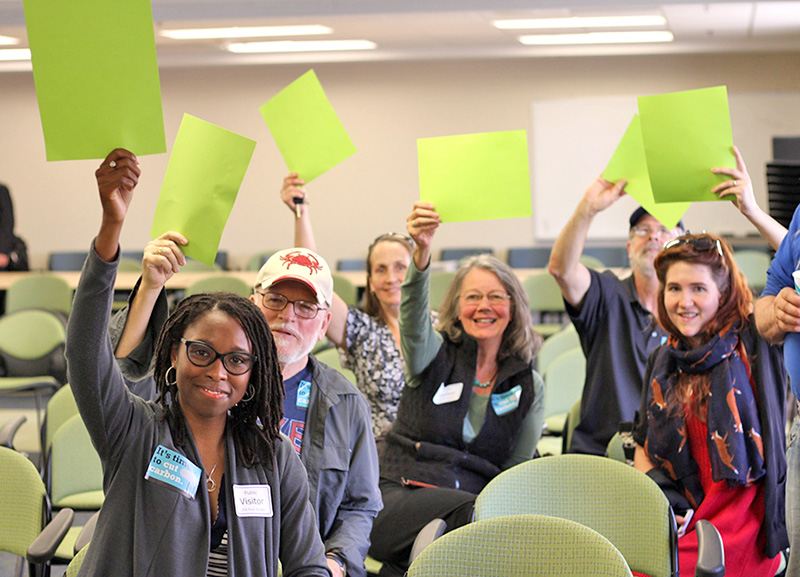As my sufferings mounted I soon realized that there were two ways that I could respond: either to react with bitterness or seek to transform the suffering into a creative force. I decided to follow the latter course.
—Martin Luther King, Jr.
King’s words spoken some 50 years ago describe the crossroads facing concerned Americans in 2016.
The hand-wringing and disbelief over Trump’s election has gone on long enough. We have to mobilize if we want to stop the Trump machine in its tracks.
While there have been street marches against Trump, most liberal and progressive responses to Trump have taken the form of signing petitions and posting Facebook articles against racism, Islamaphobia and support for the Dakota pipeline resisters. What’s missing are individual and community strategies where we put ourselves out there, emerging from behind our computer screens.

Young protesters advocating compassion, key to overcoming Trump’s hate speech.
For those folks who may not be protest oriented, but want suggestions for being change agents in their daily interactions, check out the article by Elizabeth Svoboda in Yes! Magazine titled, “8 Strategies for Confronting Hate (That Don’t Involve a Safety Pin).”
Svoboda believes it’s important when we find ourselves in situations where hate speech is being expressed, to speak up. (Common sense warning: if there is the prospect of violence, refrain.) Svoboda cities research that shows people in a group tend to conform to what’s going on around them and if someone speaks up, the group has a tendency to follow suit.

Identify a heroic figure, like this Suffragette Adela Pankhurst, to embolden you to speak out against hate.
Since speaking up can be a courageous act, Svoboda advises us to role-play this behavior with friends or in a community group designed to promote activism. Having a heroic model to draw up can bolster one’s courage. For example, think Rosa Parks.
When it comes to large scale protests like the one being planned for Inauguration Day and the Women’s March the day after, I recommend the article, “Why Some Protests Succeed While Others Fail,” by Jesse Singal. He interviewed scholars of activism who all warn against seeing protests as an end in themselves.
Fabio Rojas, author of From Black Power to Black Studies, says it’s important to have a clear sense of what a protest is for: “What are you trying to accomplish with a protest? Are you trying to influence a specific policy? Are you trying to build solidarity within the movement?” (In other words a protest has to think beyond the euphoria of marching with like-minded souls.)

Green activists planning a focus for their protest
Rogas warns against a single anti-Trump focus as opposed to one that is policy oriented, like widespread abortion access.
Dana R. Fisher, a sociologist at the University of Maryland, recommends that protests be accompanied by targeting people in Congress who are sympathetic and long term that we factor in boycotts and civil disobedience.
Ziad Munson, a sociologist at Lehigh University, cautions against lumping disparate causes together, like Black Lives Matter, Palestinian Rights and climate justice. He believes this reflects an area where the Right has outmaneuvered the Left, noting that the anti-abortion movement has simply invited participants without wanting them to be ideologically pure. Munson claims people want to feel accepted but not intimidated.
All the experts agree that marchers should go away with suggestions for engaging in their home communities. In the case of the Women’s March, one idea is to list volunteer needs of Planned Parenthood, like being a clinic escort for one hour a week; the point is to make the initial commitment manageable.

Publicity for the upcoming January Women’s March in DC
Singal sums up his research with three general rules for the organizers of the DC protests, which apply to all protests, including those you might be organizing on your home turf:
-
Trump can be useful as a galvanizing force but keep things focused on a particular issue.
-
Make everyone who is interested in your cause, or who exhibits curiosity about it, feel welcome.
-
This point may seem patently obvious, but it’s vital: Stay nonviolent. (Standing Rock attests to the success of this strategy.)
ONWARDS TO A NEW AND BETTER WORLD!